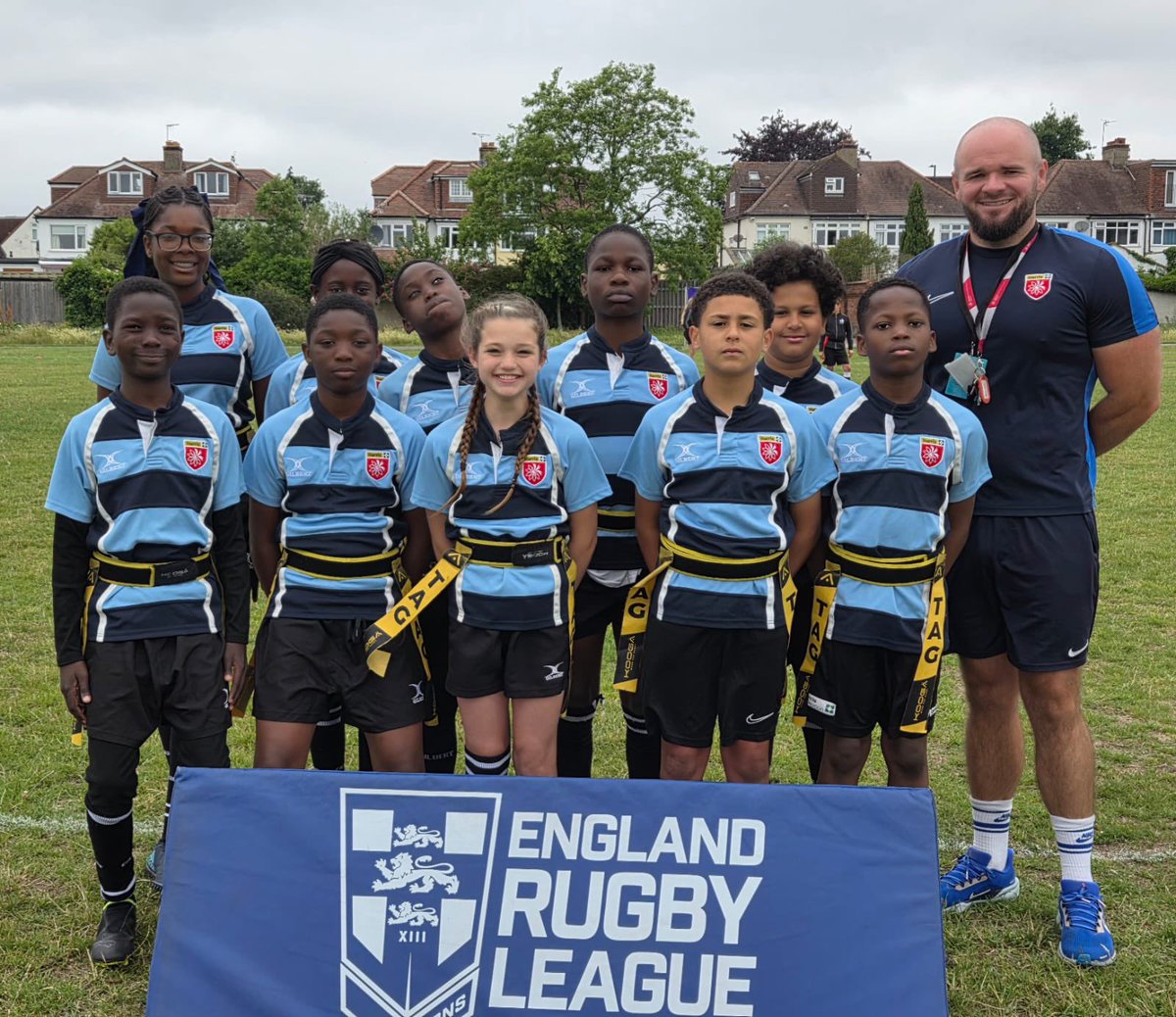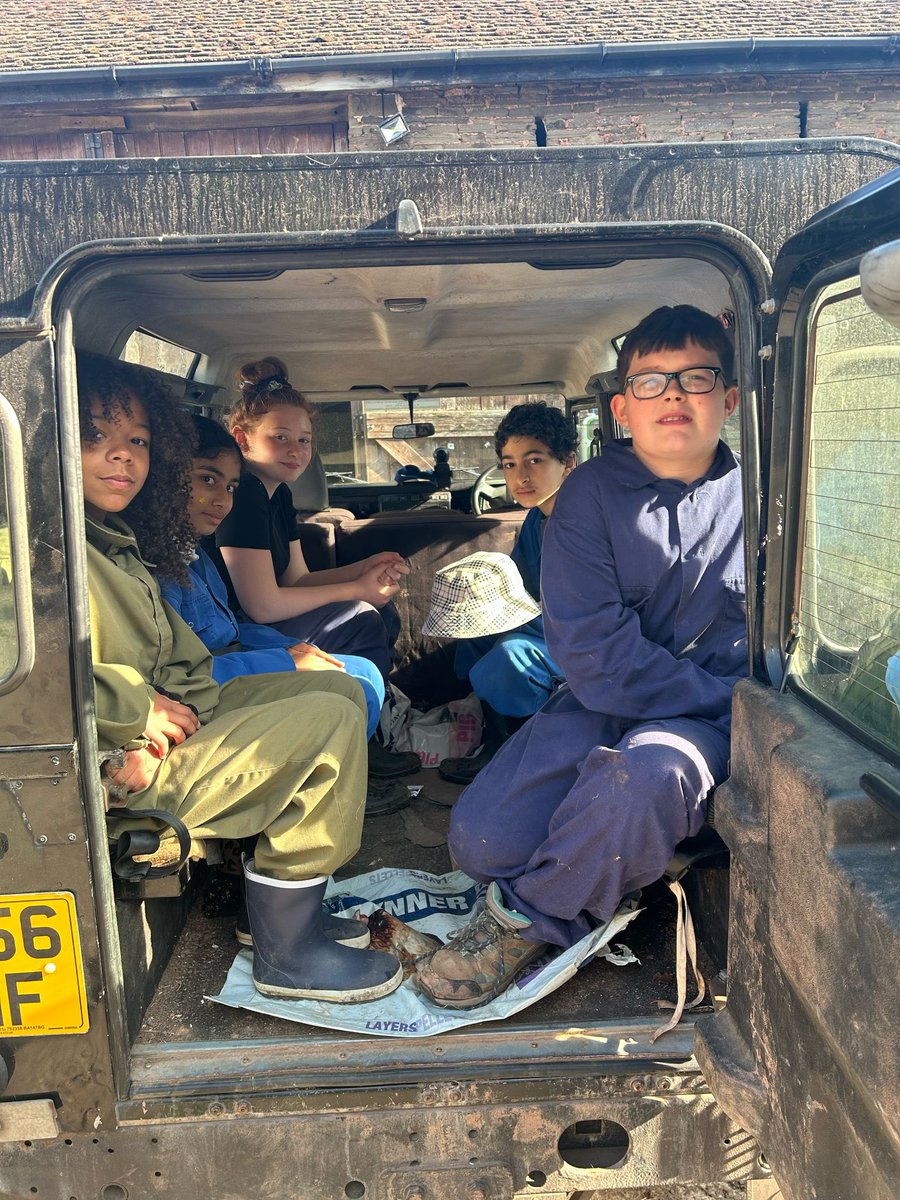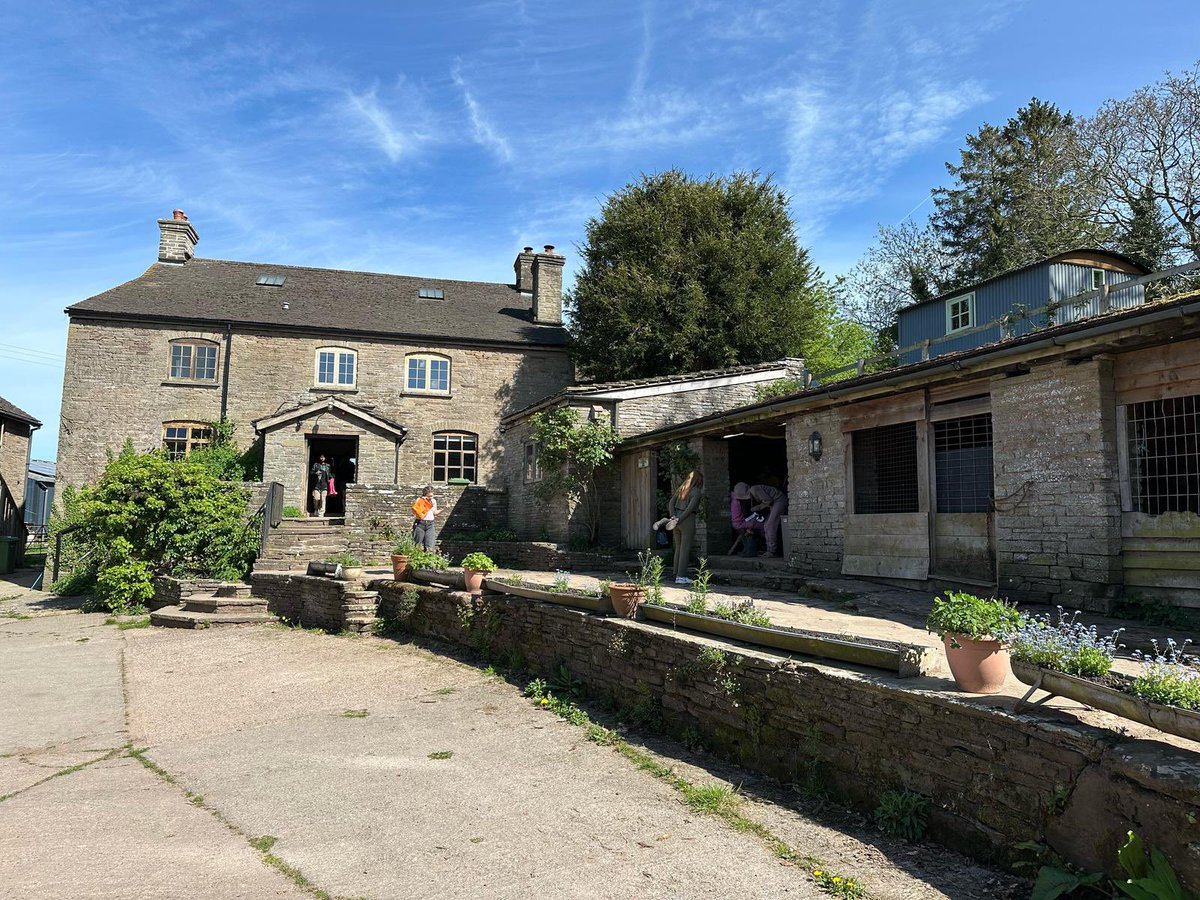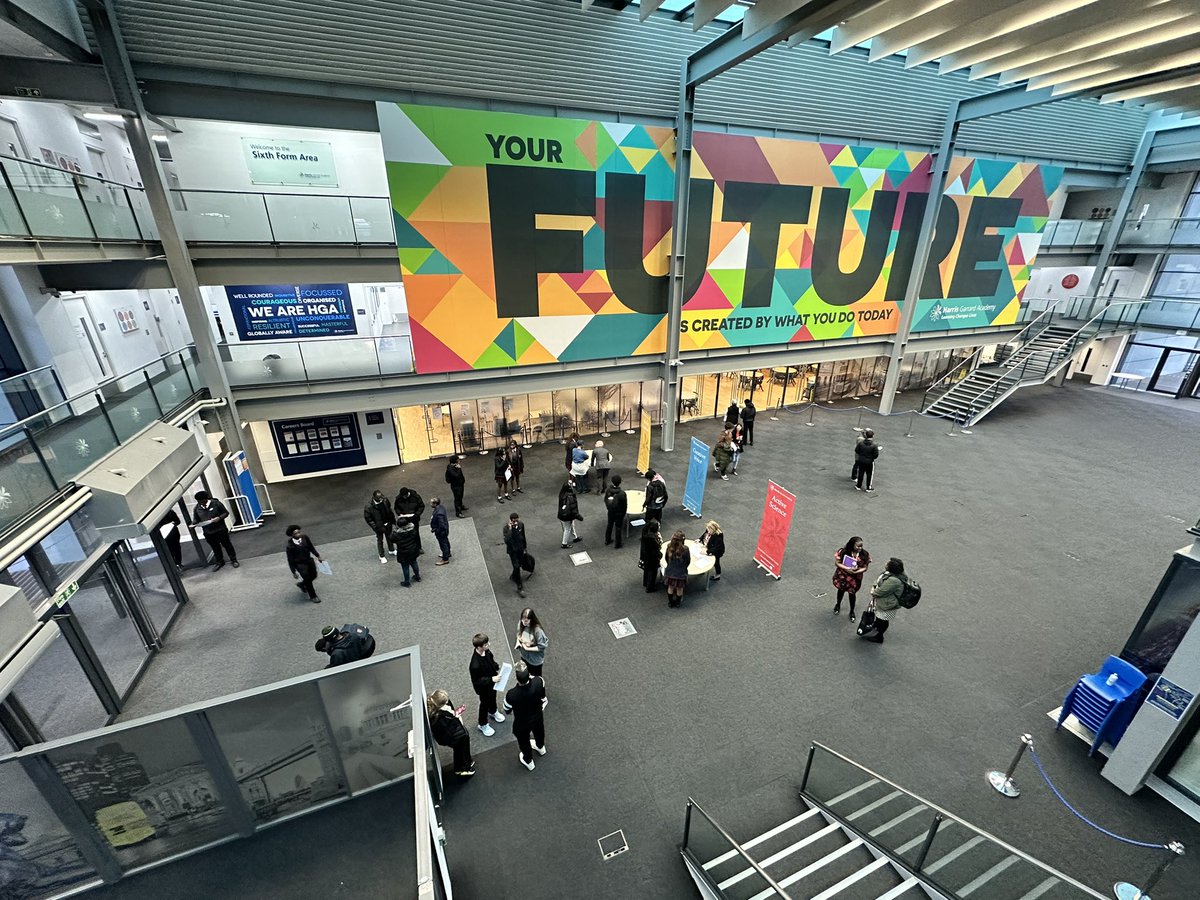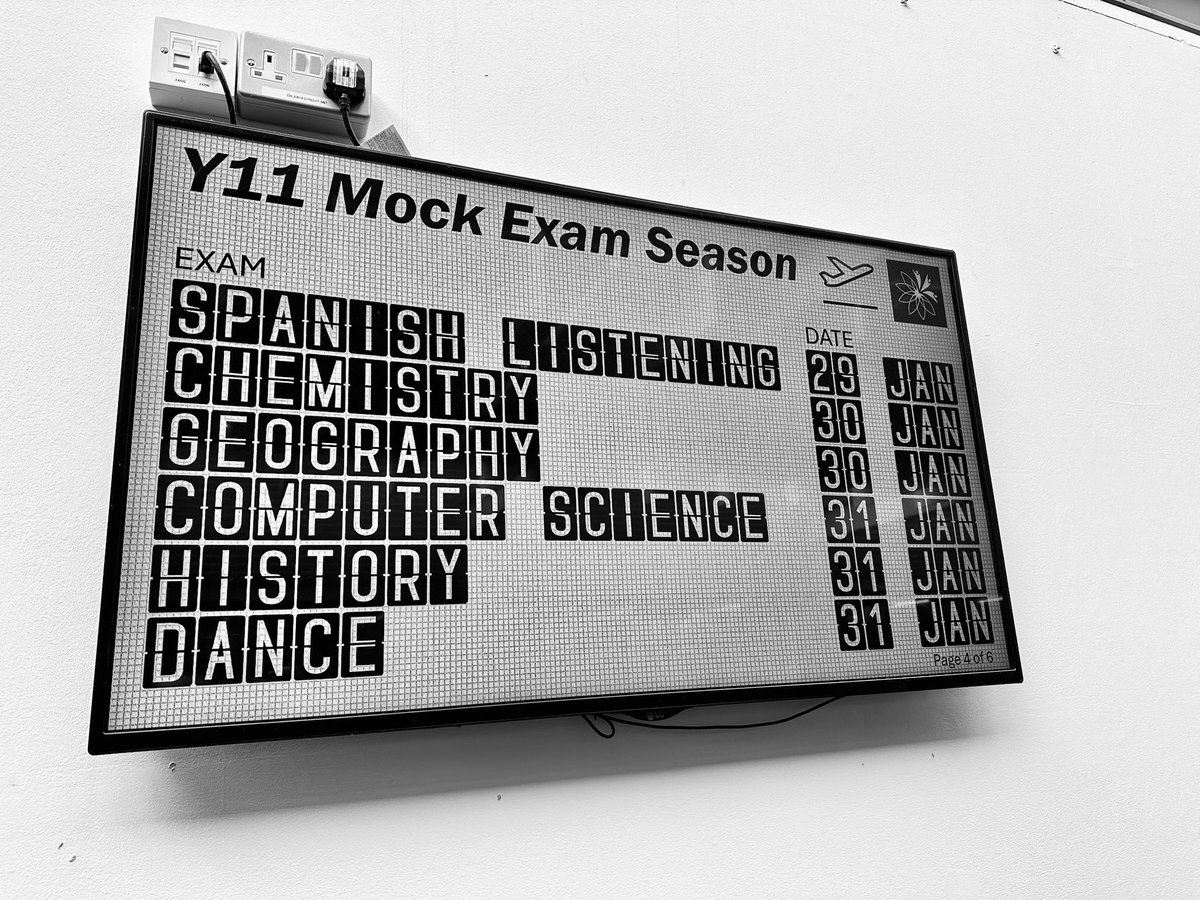Safeguarding
This page is designed to be a source of information about safeguarding for the community, parents and students - to help inform and educate everyone in our school community.
The Academy Designated Safeguarding Lead (DSL) is:
- Ms Thomas - Assistant Principal (in Ms Thomas' absence another designated safeguarding officer will act as DSL supporting the DDSLs)
The Academy Deputy Designated Safeguarding Leads (DDSLs) are:
- Ms Rigby (Secondary Phase/DDSL)
- Mr Purchase (Primary Phase)
- Ms Allen (Primary Phase)
The BfLLs are allocated to Hubs as follows:
- Ms Beattie - Active Science
- Ms Dyer - Creative Voice
- Ms Smith - Enterprise
- Ms Butler - World Studies
Parents and members of the local community can contact the Safeguarding Team via the Academy telephone number or by email on safeguarding@harrisgarrard.org.uk. Students can contact the Safeguarding Team via the SHARPS system.
Out of hours safeguarding concerns
If you have a safeguarding concern during any period the academy is closed, please contact the local authority out of hours emergency number: Bexley, 020 8303 7777; Greenwich, 020 8854 8888.
If you think a child is in immediate danger or in the event of an emergency, please call the police 999. To report non-emergencies to the police call 101.
Harris Garrard Academy is committed to providing a safe, secure and respectful environment for all children, staff and visitors. We promote a child centred approach to wellbeing and safeguarding, ensuring that the individual rights and needs of the child are central to our decision making and actions. We foster an atmosphere of trust, respect and security by providing a caring, safe, inclusive and stimulating environment which promotes the social, moral, spiritual, cultural and physical development of all students.
We actively promote a climate in which children and adults are confident about sharing concerns about the wellbeing or safety of themselves or others. At Harris Garrard Academy, we treat all matters of safeguarding and wellbeing in a sensitive, respectful and professional manner. Staff at Harris Garrard Academy are trained in response and reporting procedures frequently and are aware of the processes for making referrals to the HGA Safeguarding Team, Children’s Social Care and the Police.
On this page you'll find information about Child Protection and Safeguarding including topics such as E-safety, preventing harmful sexualised behaviour, PREVENT, FGM and Child Sexual Exploitation. Our Safeguarding Policy, visitor leaflets and parent/carer guides can be downloaded from the bottom of the page.
Safeguarding aims
The aims of our Safeguarding policy are Prevention, Protection and Support in line with Child Protection guidelines. The Academy safeguarding procedures ensures that we:
- Support our students' development in ways that foster security, confidence and independence.
- Raise the awareness and importance of recognising and reporting safeguarding, and of moral and professional responsibilities amongst all stakeholders including support and teaching staff, governors, students, visitors and parents.
- Provide high quality training and awareness campaigns for staff, and to ensure that the SLT/DSL/DDSLs undertake appropriate training (including biannual level 3 training and safer recruitment training).
- Provide a systematic means of monitoring all students, particularly those who are vulnerable or known to be ‘at risk’ of harm.
- Emphasise the need for excellent communication between staff, students, parents and external agencies (including the Police, PREVENT duty teams, Social Services, Youth Offending teams and other key agencies and workers involved in supporting our students and families).
- Develop, implement and review structured procedures within the Academy so that they are effective and can be understood and consistently followed by all members of the Academy community.
- Maintain vigilance and an ‘it could happen here’ attitude, and that we build a holistic picture of each child’s needs by paying attention to each factor or piece of information.
The HGA Designated Safeguarding Team
The staff with overall responsibility for Safeguarding across the Academy are as follows:
- Wayne Barnett - Executive Principal
- Kristen Gringeri - Head of Academy
- Shereen Thomas - Assistant Principal and DSL
- Claire Allen - Assistant Principal and DDSL
- Kim Rigby - Secondary Phase/DDSL
- Bruce Purchase - Primary DDSL
The Nominated Governors with responsibility for safeguarding are:
- Sandra Miles - Chair of Governors
- Julie McMahon - Nominated governor for safeguarding
The HGA Designated Safeguarding Team consists of trained and qualified staff who are highly skilled and experienced in dealing with safeguarding issues. The poster pictured below is displayed in every classroom, office and in corridors around the Academy. This is to ensure that every member of the Academy community can report and discuss matters with trained staff. Parents and members of the local community can contact the Safeguarding Team via the Academy telephone number or by email on safeguarding@harrisgarrard.org.uk.
Secondary safeguarding poster

Primary safeguarding poster

Reporting concerns
Parents and members of the local community can contact the Safeguarding Team via the Academy telephone number or by email on safeguarding@harrisgarrard.org.uk.
Members of the public are also able to make direct referrals to Social Care. Please find below details of Children’s Services in our local area.
For Bexley residents
- Bexley MASH - 020 3045 5440 (Monday to Friday 9am to 5pm)
- Bexley out of hours emergency team - 020 8303 7777 or 020 8303 7171 (Monday to Friday and weekends 6pm to 8am)
- Bexley MASH email - Childrenssocialcare.admin@bexley.gov.uk
- Bexley Postal address - Civic Offices, 2 Watling Street, Bexleyheath DA6 7AT
Link: Bexley MASH referral form can be accessed here
For Greenwich residents
- Greenwich MASH - 020 8921 3172.
- Greenwich emergency duty team - 020 8854 8888
- Greenwich MASH email - mash-referrals@royalgreenwich.gov.uk
Link: Greenwich MASH referral form can be accessed here
The BEXLEY LADO (Local Authority Designated Officer) dealing with allegations against members of staff is Edward Snelgar who can be contacted on 0203 045 5563 and LADO@bexley.gov.uk
For safeguarding concerns about an adult, contact the person mentioned in the diagram below, depending on who the concern is about.
|
IF THE ALLEGATION IS ABOUT: |
YOU MUST REPORT IT TO: |
|
ASSISTANT DIRECTOR (CHRIS EVERITT) |
HARRIS FEDERATION SECONDARY DIRECTOR (REBECCA HICKEY) |
| EXECUTIVE PRINCIPAL (WAYNE BARNETT) | HARRIS FEDERATION SECONDARY DIRECTOR (REBECCA HICKEY) |
|
HEAD OF ACADEMY (KRISTEN GRINGERI) |
HARRIS FEDERATION SECONDARY DIRECTOR (REBECCA HICKEY) |
|
A SECONDARY STAFF MEMBER |
HEAD OF ACADEMY (KRISTEN GRINGERI) |
| A PRIMARY STAFF MEMBER | HEAD OF ACADEMY (BEN SHEPPARD) |
|
A STUDENT |
ACADEMY DESIGNATED SAFEGUARDING LEAD (SHEREEN THOMAS) |
Harris Garrard safeguarding review committee
The purpose of this committee is to analyse and evaluate all aspects of safeguarding that have been reported through safeguarding systems within the academy, from external agencies or from other local trusted sources.
This is to ensure that the safeguarding measures, support and provision offered by the Academy fully meets the need that exists within the academy and local community. It will also ensure that the safeguarding provision at Harris Garrard Academy can evolve to meet new emerging safeguarding trends that may develop.
By reviewing this information, the academy leadership will be able to understand the contextual safeguarding implications and adapt the overarching safeguarding provision at the Academy.
This committee consists of the Executive Principal, Head of Academy, Head of Primary, Designated Safeguarding Lead (Vice Principal), Deputy Safeguarding Leads and Safeguarding Governor. The committee meets monthly and does not discuss individual safeguarding cases.
Monitoring online activity
We monitor students' use of the internet by using filters and monitoring systems (Securus). Securus is monitoring software that can monitor a wide range of devices. It monitors against an inbuilt library of keywords and phrases organised into categories with each one given a default severity rating.
The library is developed in partnership with a number of charities and specialist organisations within law enforcement and child protection. The programme monitors both online and offline material and recognises inappropriate or harmful content, words and phrases.
A screen shot (known as a ‘capture’) plus other details is taken of every incident triggered, showing what was displayed at the time, who was involved and when the incident took place. This information is shared with the DSL and Head of Academy, allowing Academy staff to implement further actions or interventions as required.
Health and Safety
The medical needs officer is Sam Crouchman s.crouchman@harrisgarrard.org.uk
The strategic health and safety lead is Kristen Gringeri k.gringeri@harrisgarrard.org.uk
The operational health and safety officer is Paul Townley p.townley@harrisgarrard.org.uk
Dedicated Ward Officers – Children and Young People
We are proud to work closely with a range of external agencies, including the police, to ensure the safety and wellbeing of all our students. As part of this commitment, we collaborate with Dedicated Ward Officers – Children and Young People (DWO – CYP), who play a vital role in delivering a community-focused approach to youth-based policing.
The DWO – CYP role is fully integrated within the Safer Neighbourhood Teams and reflects the Metropolitan Police Service’s commitment to a ‘child first’ approach, as outlined in their Children’s Strategy. This ensures that the voices of young people are heard and that their needs are prioritised in every interaction.
Our designated DWO – CYP is Sergeant Adam Calladine. Through his work, we are able to strengthen community ties, increase police visibility, and create a safer, more supportive environment for our students both in and outside of school.
Together, we are building trust, promoting safety, and supporting the next generation.
Visiting Speakers to the Academy
Harris Garrard Academy utilises the expertise of a wide range of guest speakers, lecturers, authors and visitors to enrich and augment the curriculum and learning opportunities of our students.
However, the safeguarding of our students is at the forefront of everything we do. To ensure that guests' and visitors’ information is in line with our own values and ethos the Academy completes a rigorous process of checks. By completing these checks, the Academy is confident that we are protecting our students from extremist views such as radicalisation and homophobia while enjoying the wide benefits of external speakers. All visitors to the academy are expected to follow the Visitors' Code of Conduct, which can be found at the bottom of this page.
Harris Garrard Academy and the PREVENT Duty
The Academy believes and actively supports the view that all students should be protected from radicalisation and extremism. Read more about how we approach Social, Moral, Spiritual and Cultural Education, including radicalisation and extremism. The Academy's designated, accredited PREVENT Duty Lead is Shereen Thomas.
The PREVENT duty has two specific strategic objectives to safeguard our students against radicalisation, extremism and any actions or beliefs that are contrary to British values and our academy ethos.
1. Respond to the ideological challenge of terrorism and the threat we face from those who promote it.
2. PREVENT people from being drawn into terrorism and ensure that they are given appropriate advice and support.
Our Academy opposes all forms of extremism. We define ‘extremism’ as vocal or active opposition to fundamental British values, including democracy, the rule of law, individual liberty and mutual respect and tolerance of different faiths and beliefs.
The Academy works closely with the counter-terrorism referral programme “Channel”. The programme uses a multi-agency approach to identify and provide support to individuals who are at risk of being drawn into terrorism by:
- identifying individuals at risk
- assessing the nature and extent of that risk
- developing the most appropriate support plan for the individuals concerned.
Key staff training
|
Staff |
Role |
|
Accreditation/ training |
| Shereen Thomas | Assistant Principal | s.thomas@harrisgarrard.org.uk |
Safeguarding training for Designated Safeguarding Leads PREVENT duty accredited training Positive Handling accredited training Safer recruitment training |
|
Christopher Everitt |
Assistant Director, Harris Federation Secondary Education |
|
Safeguarding training for Designated Safeguarding Leads Preventing and dealing with harmful sexualised behaviour training Child Sexual Exploitation accredited training Online safety accredited training WRAP (PREVENT) training Positive Handling accredited training Advanced counter-extremism strategy training with "Since 911" Leading Health and Safety in Schools Raising Awareness of Peer-on-Peer Abuse Level 2 Sexual Violence and Harassment between Children and Young People Level 2 Female Genital Mutilation Awareness Level 2 Child Protection in Education Level 2 The PREVENT Duty Level 1 |
| Kristen Gringeri | Head of Academy | k.gringeri@harrisgarrard.org.uk |
Safeguarding training for Designated Safeguarding Leads Preventing and dealing with harmful sexualised behaviour training PREVENT duty accredited training Female Genital Mutilation accredited training Positive Handling accredited training Safer recruitment training Leading Health and Safety in Schools |
|
Lisa Dyer |
Exams Officer |
|
Safeguarding training for Designated Safeguarding Leads Preventing and dealing with harmful sexualised behaviour training PREVENT duty accredited training Female Genital Mutilation accredited training Positive Handling accredited training Child Sexual Exploitation accredited training Online safety accredited training Team Teach Positive handling First aid at work Gang Violence Awareness Workshop June 2018 |
|
Nicola Smith |
Behaviour for Learning Lead |
|
Safeguarding training for Designated Safeguarding Leads Preventing and dealing with harmful sexualised behaviour training PREVENT duty accredited training Female Genital Mutilation accredited training Positive Handling accredited training Child Sexual Exploitation accredited training Online safety accredited training Approach training positive handling First aid at work Child neglect accredited training |
|
Kim Rigby |
Secondary Phase/DDSL |
|
Safeguarding training for Designated Safeguarding Leads Preventing and dealing with harmful sexualised behaviour training PREVENT duty accredited training Female Genital Mutilation accredited training Positive Handling accredited training Child Sexual Exploitation accredited training Online safety accredited training Draw and talk Approach training positive handling First aid at work Gang Violence Awareness Workshop June 2018 |
|
Claire Allen |
Assistant Principal Primary DDSL |
|
Safeguarding training for Designated Safeguarding Leads Preventing and dealing with harmful sexualised behaviour training PREVENT duty accredited training Female Genital Mutilation accredited training Positive Handling accredited training Child Sexual Exploitation accredited training Online safety accredited training Safer recruitment training |
|
Bruce Purchase |
Learning Mentor Primary |
|
Safeguarding training for Designated Safeguarding Leads Preventing and dealing with harmful sexualised behaviour training PREVENT duty accredited training Female Genital Mutilation accredited training Positive Handling accredited training Child Sexual Exploitation accredited training Online safety accredited training Gang Violence Awareness Workshop June 2018 |
| Laura Beattie | Behaviour for Learning Lead |
Prevent duty accredited training Female genital mutilation Child sexual exploitation accredited training Online safety accredited course Team teach positive handling |
|
| Stacey Butler | Behaviour for Learning Lead | S.Butler@harrisgarrard.org.uk |
Safeguarding training for Designated Safeguarding Leads Prevent duty accredited training FGM accredited training Use of reasonable force Child Sexual Exploitation accredited training Online Safety Training Positive Handling First aid at work |
'Published Staff Safeguarding Training'
|
Date |
Safeguarding |
Delivered by |
Points covered |
Audience |
|
INSET |
Safeguarding Part 1 KCSIE |
DSL |
KCSIE part 1 and your ‘to do list’ |
All staff inc contractors |
|
26th Sept |
Accurate Records, Logging and Urgency. |
DSL |
Designated safeguarding team; roles and responsibilities |
All Staff |
|
Au1 |
Educare Prevent Training Course |
Educare |
Understand the difference between extremism and radicalisation. |
New staff |
|
As required |
L3 training - Cohort 1 |
Anne Marie Christian |
Level 3 Safeguarding training |
SLT, and DDSLs |
Staying safe online
The online world is a wonderful place for young people to explore, with unprecedented opportunities for learning and creativity. But just like the real world there are risks and dangers they should be aware of, and which we can act to protect them from. Although the Academy teaches students e-safety as part of the curriculum, it is vital that parents are aware of the risks too, and what they can do to develop a culture of e-safety in the home.
This page has some helpful resources for parents that will enable you to help your child stay safe online. If you have any concerns about your child's e-safety, there is always someone at the Academy who is available to talk to you. Simply call the school and ask for our Designated Safeguarding Lead, Shereen Thomas, or speak to any member of staff. Our e-safety policy can be found below.
Think You Know
The Think You Know website is created by the police for parents of children at secondary school. It contains useful information about:
- what children are doing online
- how to talk to children about what they are doing online
- what risks your child might face
- what tools are there to help them stay safe.
Think You Know have also produced the Parents' Guide to E-Safety as well as the following booklets to provide parents/carers with helpful information on how to explore and monitor their children’s apps.
Sexting
The term ‘sexting’ describes the use of technology to share intimate images of yourself. It’s a word-mix of sex and texting. The content can vary, from text messages to images of partial nudity to sexual images or videos. For more information and guidance for parents and children visit the Childnet website. If you have shared something online that you are now regretting you might find the So You Got Naked Online leaflet helpful, produced by the South West Grid for Learning.
Other useful resources
Parents' guides to Instagram, Snapchat, WhatsApp and TikTok from the Online Safety Alliance. Download the guides.
List of helpful online resources produced by Childnet
www.childnet.com – Visit the ‘Know It All’ Section for an interactive guide about online safety
www.getsafeonline.org – Free up-to-date security advice
www.ceop.police.uk – Website of the Child Exploitation and Online Protection Centre
www.bbc.co.uk/onlinesafety – guidance about how to make the most of being online while staying safe.
www.nspcc.org.uk/preventing-abuse/keeping-children-safe/share-aware - the NSPCC has launched the Share Aware campaign which provides straightforward advice to parents on how to keep their 8-12-year-olds safe on social networks
https://coramvoice.org.uk/ - Coram Voice is for any child in care, leaving care, or who has a social worker or needs one. Coram Voice can tell you about your rights, make sure you get the help you need and get your voice heard. You can also call their Advocacy Helpline 0808 800 5792. Download the Get Your Voice Heard leaflet.
Squid Games - What Parents Need to Know
Download 'Online Safety Tips for Children', from National Online Safety. Click on the image to download.
Download a '9 Top Tips to Get Smart About Children's Devices', from National Online Safety. Click on the image to download.
Support from London Borough of Bexley


Tracking child-on-child abuse and adapting educational provision
Harris Garrard Academy maintains a comprehensive child-on-child abuse tracker that records all incidents that relate to the follow areas:
- bullying (including homophobic, transphobic and biphobic)
- sexual harassment (including derogatory language, inappropriate touching, upskirting and intimidation)
- sexual violence
- racist incidents
- physical incidents
This information is reviewed monthly by the safeguarding review committee and the information on trends and analysis is used to evaluate and adapt our Character & Mindfulness curriculum, our safeguarding curriculum and our assembly programme, at all key stages across the Academy.
This may result in resequencing of curriculum topics based on priorities identified from the child-on-child abuse tracker or by adding new safeguarding topics that have been identified within the local context or via the tracker trend evaluation.
Contextualised safeguarding
‘Contextual safeguarding’ is an approach to understanding, and responding to, young people's experiences of significant harm beyond their families. It recognises that the different relationships that young people form in their neighbourhoods, schools and online can feature violence and abuse. At Harris Garrard Academy we place our approach to safeguarding within the context of the community safety strategies and priorities of the London boroughs of Greenwich and Bexley. These are:
Greenwich
- Creating and sustaining safer public spaces
- Reducing the harm that alcohol causes
- Tackling hate crime and supporting the vulnerable and repeat victims
- Ending violence against women and girls
- Countering the threat of terrorism and extremism
- Preventing and reducing the harm from youth violence and gangs
Bexley
- Safeguarding and supporting victims and families of domestic abuse and hate crime
- Tackling identified antisocial behaviour
- Continuing to reduce residential burglary and its impact on the community
- Early intervention to safeguard people against violent crimes
- Reducing substance misuse related to crime and antisocial behaviour
Contextualised safeguarding in action
Different contexts appears to have different ‘weights of influence’. For example, the influence of peers may outweigh that of parents/carers. There is also an interplay between different contexts and relationships. For example, the impact that young people’s experiences have on their relationships in school, and vice versa.

Diagram: Contexts of Adolescent Safety & Vulnerability (Firmin 2013)
Young people’s engagement in extra-familial contexts can also inform, and be informed by, what is happening in their homes. Therefore, when young people are exposed to violence or exploitation in their school, community or peer group it may fracture their family relationships and undermine the capacity of their family to keep them safe.
Gangs
A gang can be summarised as a group who see themselves and are seen by others as a gang, and for whom crime and violence are a central part of their activities. Children and young people face all sorts of pressures, including possibly feeling pressure to follow friends who may be in a gang. If you have any concerns or questions about gangs please do contact our Dedicated Ward Officers – Children and Young People (see above). You might also like to read the Home Office leaflet Gangs: You and Your Child which gives advice to parents on gangs and how to help children make the right choices. Westminster Council have also produced a leaflet with advice and guidance to parents and carers about serious youth violence, knife crime and gangs.
What is a Money Mule?
More young people across the UK are being approached by criminals who want to use their bank accounts or pin numbers for criminal purposes. This is called being a ‘money mule’. A ‘mule account’ is used to hide money that comes from illegal activities. The young person may be asked to transfer money, allow access to their account or open up a new one. Sometimes criminals will try and force young people to become mules or they might offer financial incentives such as cash or mobile phone credit.
We need your support to help educate young people around this issue. Has your child been approached or asked for their bank account to be used? Check any bank statements. Is there money going in and out that cannot be accounted for? Ask questions if you are unsure about anything.
Bank accounts are private and must only be used by the account holder. Any misuse could not only be criminal but could cause serious credit issues for the account holder. Police are working in partnership with many schools across London to combat this issue. If you have any concerns, speak to your Safer Schools Police Officer (see below) and/or Action Fraud (www.actionfraud.police.uk) on 0300 123 2040.
Drugs networks ('County lines')
The National Crime Agency, the UK body charged with fighting organised crime, is very concerned that crime gangs are taking over drug networks using telephone hotlines (called 'county lines') and recruiting vulnerable people, often children, to act as couriers and to sell drugs. Please see our information sheet about 'county lines' and 'cuckooing' - the practice whereby professional drug dealers take over the property of a vulnerable person and use it as a place from which to run their drugs business.
What parents need to know about MOMO
Momo is a sinister ‘challenge’ that has been around for some time. It has recently resurfaced and once again has come to the attention of schools and children across the country. Dubbed the ‘suicide killer game’, Momo has been heavily linked with apps such as Facebook, WhatsApp, YouTube, and most recently (and most worryingly)... YouTube Kids. The scary doll-like figure reportedly sends graphic violent images, and asks users to partake in dangerous challenges like waking up at random hours and has even been associated with self-harm. You can download a guide for parents about MOMO, published by National Online Safety.

